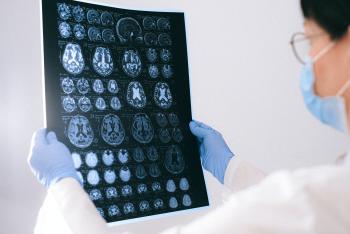Inspira Health proudly recognizes the philanthropy of Gary and Betty Galloway of Vineland, N.J...
Read More

Twenty-five percent of patients in the intensive care unit experience a seizure. Of these seizures, 90 percent are nonconvulsive status epilepticus (NCSE)—a prolonged seizure that manifests as a change in mental status and is often not observable, compared to convulsive seizures where symptoms are observable.
Because a patient with NCSE will likely not have the characteristic outward symptoms, these seizures can only be identified through an electroencephalogram (EEG)—a noninvasive, electrophysiological monitoring method to record electrical activity of the brain. However, oftentimes there are a limited number of EEGs and qualified EEG technicians available. In cases of prolonged NCSE, a patient may even require transfer to a tertiary facility for more advanced testing.
But through the introduction of a new, portable EEG technology acquired by Inspira called Ceribell® Rapid Response EEG system, providers can more quickly monitor and assess brain activity and treat more of our ED and ICU NCSE patients. As the first hospital system in the region to offer this innovative level of care, Inspira Health is changing the way we treat patients with seizures in South Jersey.
Prolonged seizures are a medical emergency: The longer a seizure is left untreated, the greater the risk of long-term neurological damage.
“Seizure treatment is a race against the clock,” said Wanshu Di, M.D., a neurologist with Inspira Medical Group Neurology Vineland. “Eighty percent of patients with prolonged seizures respond to first-line treatment given within 30 minutes. As time goes on, the response rate diminishes exponentially and the potential for neurologic and long-term risks increases.”
Ceribell® Rapid Response EEG allows providers in emergency or inpatient care settings to quickly gather precise information and create a treatment plan customized to the individual patient’s needs.
Ceribell includes a single-use headband with 10 integrated electrodes, an EEG recorder with a brain stethoscope and a web portal for EEG review. Once the device has been fitted correctly, the recorder sends EEG data to the portal while the brain stethoscope allows technicians to actively listen to the sounds of the brain.
With the Ceribell® system, providers can view a patient’s activity by logging into the HIPAA-compliant portal on any WiFi-enabled device to monitor a patient’s neurological activity in real time. And with the Clarity® function of Ceribell® system, the device can provide bedside and remote alerts for both local staff and attending physicians. This technology allows Inspira to offer some of the advanced treatment options as other tertiary facilities, resulting in more South Jersey patients being treated where they live and work.
Inspira Health views the Ceribell® Rapid Response EEG system as an investment in the future of patient care and has implemented this service as a standard of practice at Inspira Medical Centers Mullica Hill and Vineland. If your patient is in need of this innovative inpatient program or to schedule a patient for outpatient EEG services, visit www.inspirahealthnetwork.org/EEG.

Inspira Health proudly recognizes the philanthropy of Gary and Betty Galloway of Vineland, N.J...
Read More
Strokes are the fifth leading cause of death, but fewer than 20 percent of Americans know the...
Read More
Cooper University Health Care and Inspira Health today announced the formation of Cooper and Inspira...
Read More
The material set forth in this site in no way seeks to diagnose or treat illness or to serve as a substitute for professional medical care. Please speak with your health care provider if you have a health concern or if you are considering adopting any exercise program or dietary guidelines. For permission to reprint any portion of this website or to be removed from a notification list, please contact us at (856) 537-6772